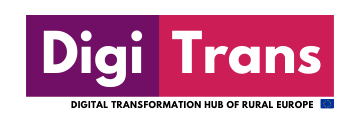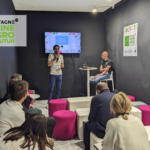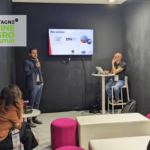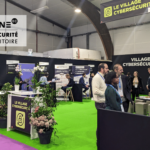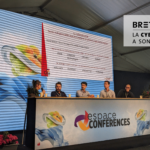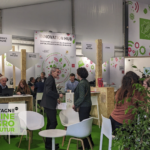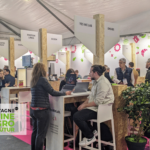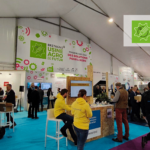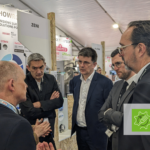Driving Sustainability in the Agri-Food Industry
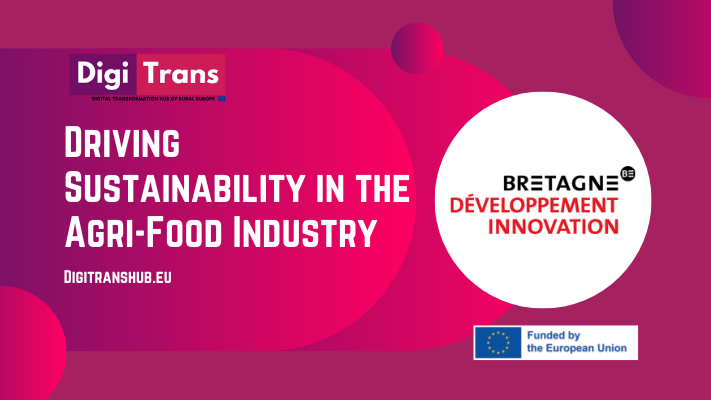
In March 2024 has been held the CFIA, in Rennes. As the leading trade fair, CFIA Rennes has brought together 1,700 exhibitors, divided into the following sectors: Ingredients & PAI, Equipment & Processes and Packaging & Packaging. Visitors, who numbered around 20 000, has been able to take advantage of Europe’s largest agri-food offering and discover concrete solutions to the challenges facing the sector.
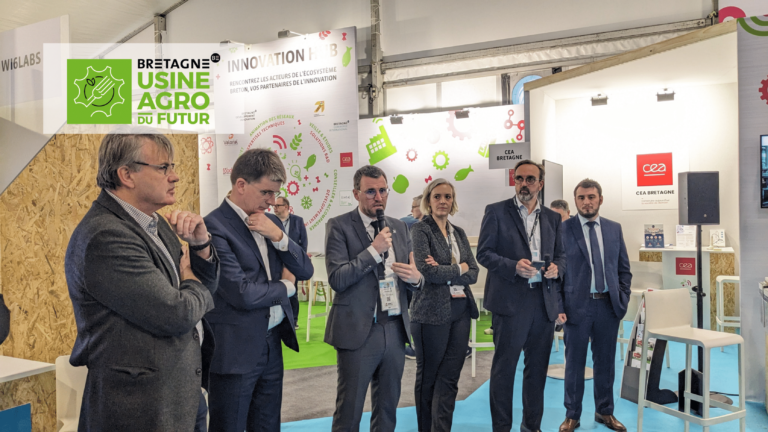
Has every year at CFIA, BDI, Valorial and the Breton Association of Agrifood Companies, co-piloted the “Food Factory of the Future” platform at CFIA 2024 that focused this year on the theme of water. The aim was to showcase innovative companies and their concrete, innovative solutions to the challenges of reducing water consumption.
This challenge is very essential to many countries and regions throughout the world and in Europe. Water shortages are becoming increasingly frequent and are likely to become more so in the coming years. We all have an interest in reducing our water consumption. And the agri-food industry, as the sector is a major consumer. To avoid draught and to find the right balance between the activities (agriculture, tourism, industry), every sector must make efforts to reduce its consumption.
Digital technologies can play a major role in reducing water consumption and ensure a right sharing of resources, with a good information, and make resources savings, by optimizing the processes. These innovations for better uses, responsibility, and sustainability, is at the heart of the AGRETIC program, led by BDI with the Chamber of Agriculture and Valorial. Since 2018, BDI has been missioned by the Regional Council of Brittany to drive the axis of its Smart Specialization Strategy “innovate and produce well, to help promote Brittany as a “Good food for all” region”. From the identification of challenges at the Farm or at the Factory, it gathers digital technology providers to build innovation projects that solution the needs and challenges of these sectors. With a strong axis on transition and sustainability, BDI tries to make the best out of Digital Transition, at the service of Green Transition.
For 2 years, BDI, via AGRETIC and other programs, is trying to integrate complexity and multiple stakeholders to be able to address the challenges ahead of us and develop rural regions thanks to digital technologies and social innovation. As we understand that the future of rural regions will pass by a stronger interconnection of all its stakeholders, allowed by digital technologies, to optimize resources and make it sustainable and resilient.
As partner of the Digitrans project, BDI aims to bring its expertise in connecting people, companies, public authorities, and digital solutions providers to develop innovation and development projects, as well as stressing the need for social innovation complementary to digital solutions, to embrace the needed transition and resilience of those regions.
Recent Posts
Digitrans Hub Blog
Do you want to share your story with us?
If you want to be part of our project, click the button and fill-in the contact form to share your story with us!
Join usFunded by the European Union. Views and opinions expressed are however those of the author(s) only and do not necessarily reflect those of the European Union or the European Education and Culture Executive Agency (EACEA). Neither the European Union nor EACEA can be held responsible for them.
ERASMUS+ DISCLAIMER
LICENSED UNDER CREATIVE COMMONS

This work is licensed under a Creative Commons Attribution – NonCommercial – Sharealike 4.0 International License.

Funded by the European Union. Views and opinions expressed are however those of the author(s) only and do not necessarily reflect those of the European Union or the European Education and Culture Executive Agency (EACEA). Neither the European Union nor EACEA can be held responsible for them.
ERASMUS+ DISCLAIMER
LICENSED UNDER CREATIVE COMMONS

This work is licensed under a Creative Commons Attribution – NonCommercial – Sharealike 4.0 International License.

